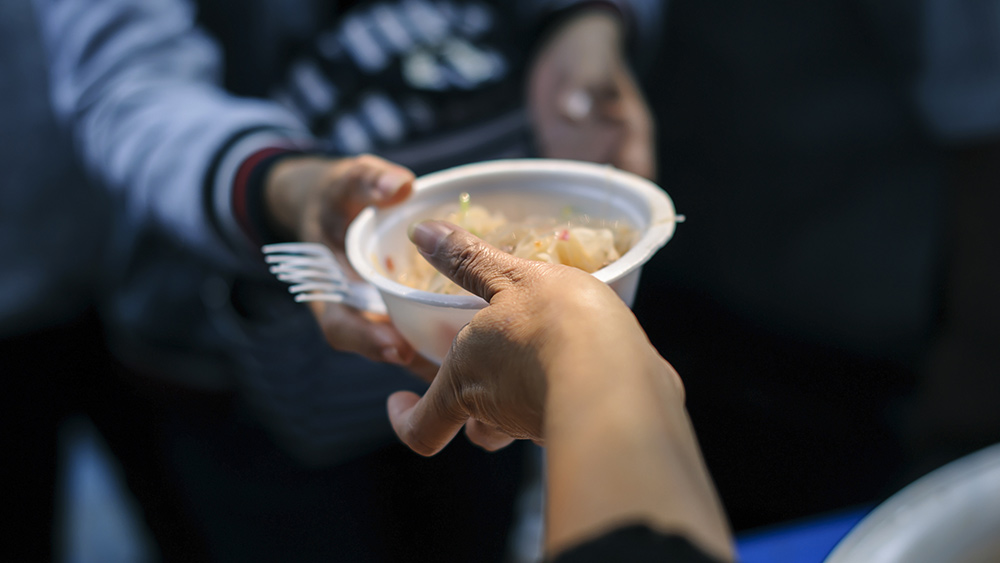A dash of POISON: Major spice brands found to contain HEAVY METALS
07/21/2023 / By Ramon Tomey

Spices are often added to dishes to give them pizzazz, but a new report has revealed that herbs and spices from some major brands contain heavy metals that can cause health issues.
The American nonprofit Consumer Reports (CR) first disclosed this in November 2021, after it tested 126 individual spice products. Spices from Walmart’s Great Value, 365 by Whole Foods Market, La Flor Spices, McCormick & Co., Penzeys Spices and Spice Islands were among those tested.
Forty products – roughly one-third of the total tested – had high enough levels of heavy metals such as arsenic, lead and cadmium “to pose a health concern for children when regularly consumed in typical serving sizes.” CR also noted that thyme and oregano products it tested had “concerning” levels of heavy metals.
According to experts at the nonprofit consumer group, 31 products tested had levels of lead so high that they exceeded the maximum amount anyone should have in a day. CR Director of Food Safety and Testing James E. Rogers remarked that even if some of these products are used in cooking, they raise serious heavy metal concerns when used regularly in the kitchen. (Related: Turmeric spices found heavily contaminated with toxic LEAD… FDA forces nationwide recalls for multiple brands (see list here.))
“When people think about heavy metals in their diet – if they do at all – it’s probably the lead in their drinking water or arsenic in their children’s fruit juices or cereals,” he said. “But our tests show that dried herbs and spices can be a surprising, and worrisome, source for children and adults.”
“Frequent exposure to even small amounts of lead, arsenic, cadmium and other heavy metals is dangerous, in part because it’s difficult for the human body to break them down or excrete them. Over time, exposure to those heavy metals can harm health,” CR warned.
“In children, it can affect brain development – increasing the risk for behavioral problems and lower IQ. In adults, it can contribute to central nervous system problems, reproductive problems and hypertension. [Heavy metal accumulation] can [also] damage kidney and immune function.”
Heavy metals in water, soil contaminating spices
Tunde Akinleye, a CR chemist who oversaw the testing process for the 126 products, said heavy metals can show up in food in two ways. Some foods naturally contain these heavy metals, while some absorb them through contaminated water or soil. Processing or packaging food can also introduce these heavy metals into the final product.
But according to Laura Shumow of the American Spice Trade Association, it’s almost impossible to rid herbs and spices of all heavy metals due to “the unavoidable presence in the environments where they are grown.” The amount of heavy metals absorbed from the soil and the part of the plant where they can end up differs from plant to plant, she added.
“Since the risks are serious, it pays to limit intake of heavy metals as much as possible,” Rogers remarked.
CR also shared the following tips toward this goal:
Use herbs and spices with lower heavy metal content
Examples of these include black pepper, white pepper, coriander, curry powder, garlic powder, saffron and sesame seeds. Versions of these herbs and spices that are low in heavy metals are available in groceries.
Avoid bringing back herbs and spices from abroad
According to CR Director of Food Policy Brian Ronholm, U.S. companies often source the highest quality herbs and spices to import from other countries. In return, spices sold in the domestic market oftentimes have a low quality and contain more heavy metals.
Make spice mixes at home
CR’s tests revealed that thyme and oregano sold in groceries have high levels of heavy metals, but versions grown and dried at home often have lower levels of these toxic elements. Herbs such as basil, oregano and thyme can be stored and kept for long periods – as dried versions of these often have a stronger flavor.
Visit CleanFoodWatch.com for more stories about heavy metals in food.
Watch this WCBS 2 news report about concerning levels of heavy metals found in many spices.
This video is from the TKWK T.V channel on Brighteon.com.
More related stories:
Ginkgo Biloba herbs from China found to contain shockingly high levels of toxic heavy metal lead.
Sources include:
Submit a correction >>
Tagged Under:
clean food watch, contamination, dangerous, environment, food safety, food science, food supply, grocery, herbs, poison, products, real investigations, spice mixes, spices, stop eating poison, toxic elements, toxic ingredients, toxins
This article may contain statements that reflect the opinion of the author
RECENT NEWS & ARTICLES
COPYRIGHT © 2022 FoodPolice.news
All content posted on this site is protected under Free Speech. FoodPolice.news is not responsible for content written by contributing authors. The information on this site is provided for educational and entertainment purposes only. It is not intended as a substitute for professional advice of any kind. FoodPolice.news assumes no responsibility for the use or misuse of this material. All trademarks, registered trademarks and service marks mentioned on this site are the property of their respective owners.



















